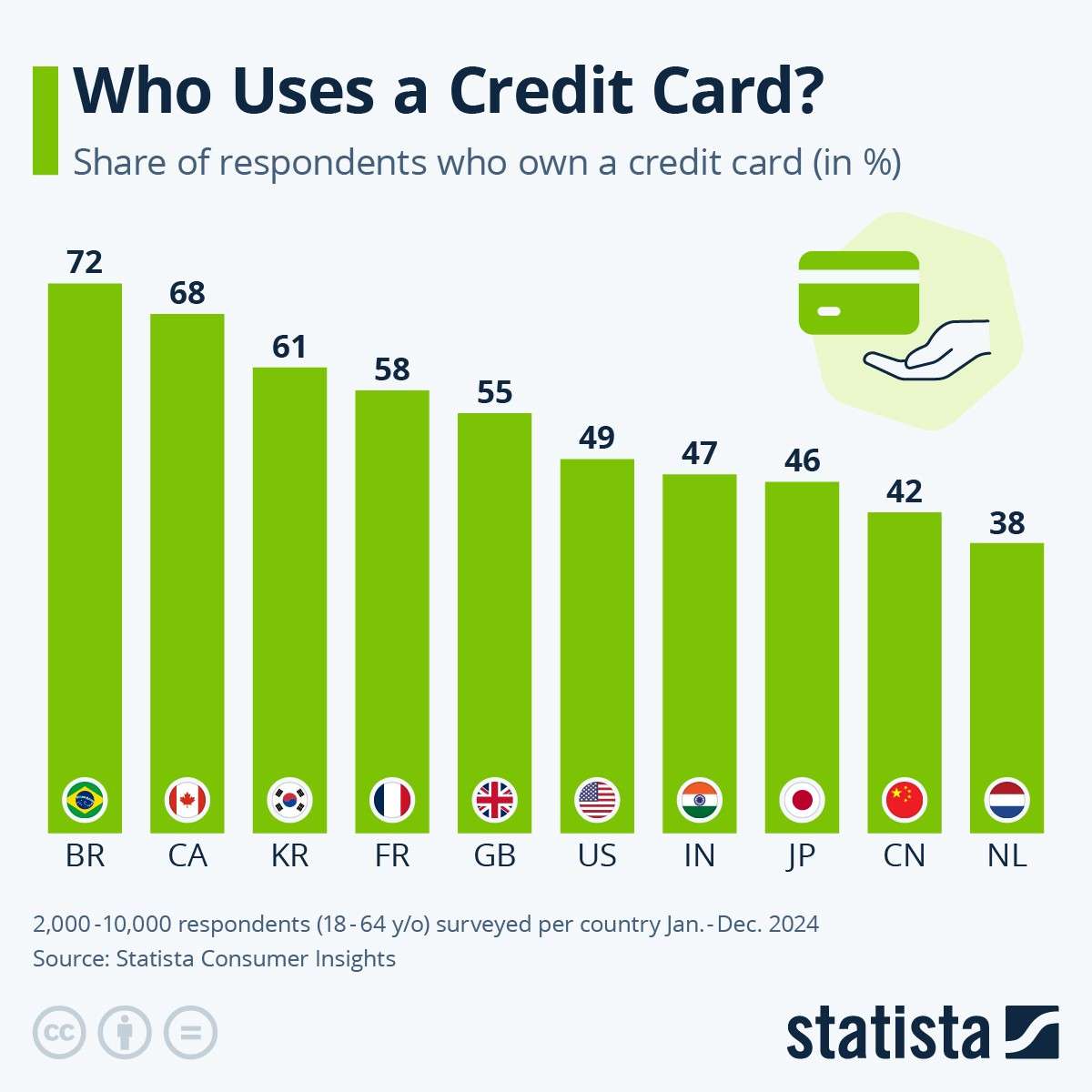(Zero Hedge)—In Brazil, it is common for shoppers to use a card that works both as a debit card and a credit card, with most credit cards also accepting the option to pay in installments.
Data by a Statista Consumer Insights survey shows that a high 72 percent of online respondents aged between 18 and 64 years old said that they owned a credit card in 2024.
As Statista’s Anna Fleck shows in the chart below, credit card ownership is also high in Canada, at 68 percent.

Surveys on the topic have found that one of the top reasons Canadians carry credit cards is for their rewards programs. Canada is considered to have one of the highest credit card penetration densities of the world, with many Canadians owning either one or two of the payment cards.
It is one of the few countries with more credit cards than debit cards.
In the U.S., 49 percent of respondents said they owned a credit card last year, versus 42 percent in China and just 38 percent in the Netherlands.
What Would You Do If Pharmacies Couldn’t Provide You With Crucial Medications or Antibiotics?
The medication supply chain from China and India is more fragile than ever since Covid. The US is not equipped to handle our pharmaceutical needs. We’ve already seen shortages with antibiotics and other medications in recent months and pharmaceutical challenges are becoming more frequent today.
Our partners at Jase Medical offer a simple solution for Americans to be prepared in case things go south. Their “Jase Case” gives Americans emergency antibiotics they can store away while their “Jase Daily” offers a wide array of prescription drugs to treat the ailments most common to Americans.
They do this through a process that embraces medical freedom. Their secure online form allows board-certified physicians to prescribe the needed drugs. They are then delivered directly to the customer from their pharmacy network. The physicians are available to answer treatment related questions.



